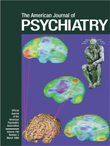To the Editor: Frequently, there is a tendency to excuse discrimination with seemingly reasonable arguments. The letter by Drs. Tinsley and McAlpine seems to be an illustration of such an excuse. This time, discrimination is hidden behind “the cost.” The authors state that their faculty spent more than 70 hours reviewing every application. Is spending 70 hours reviewing 710 applications, at the rate of 10 applications per hour on average, too much time? We do not believe it is. We hope that part of the residency training director’s duties is a thorough review of each application. Seventy hours per year is not too much or too costly to get qualified residents. The postage for mailing applications is not an extreme expense, and reviewing applications, even of a large number of applicants, would not take an inordinate amount of time based on the above calculations. Thus, the cost argument seems to us to be an excuse.
The authors further state that they are “keenly interested in identifying qualified applicants, regardless of their demographics.” Our study, however, demonstrated that this is not practiced in the majority of U.S. residency-training programs in psychiatry, as the applications were sent on the basis of the simplest demographic features—foreign name and foreign medical school. It is also not clear how Drs. Tinsley and McAlpine would identify a “qualified applicant” without even seeing an application. What our study pointed out was the existence of decisions made at the “front door” of residency programs. These decisions are made without regard to qualifications but, rather, on the basis of a foreign-looking name and foreign medical school.
Finally, the authors raise another issue, calling for the Educational Commission for Foreign Medical Graduates to take “a more active role in the evaluation of clinical competence and language skills when determining who is likely to succeed in the U.S. medical system.” Language skills have always been evaluated by the Educational Commission for Foreign Medical Graduates, using their own language examination or the Test of English as a Foreign Language. In the past, the U.S. Medical Licensing Examination was established as an equal examination for all, and the perceived discrimination due to the existence of various exams for graduates of U.S. and foreign medical schools was removed. Recently, however, the Educational Commission for Foreign Medical Graduates established a clinical skills examination that became mandatory for graduates of foreign medical schools in July 1998. The existence of such an examination could be considered discriminatory because graduates of U.S. medical schools are not required to take any national clinical competence examination. Fairness can be reestablished only when the same clinical competence exam is required for all foreign and U.S. medical school graduates.
We are unpersuaded that the findings in our study were due to cost or time. It remains that discrimination was the most probable explanation for our findings.

